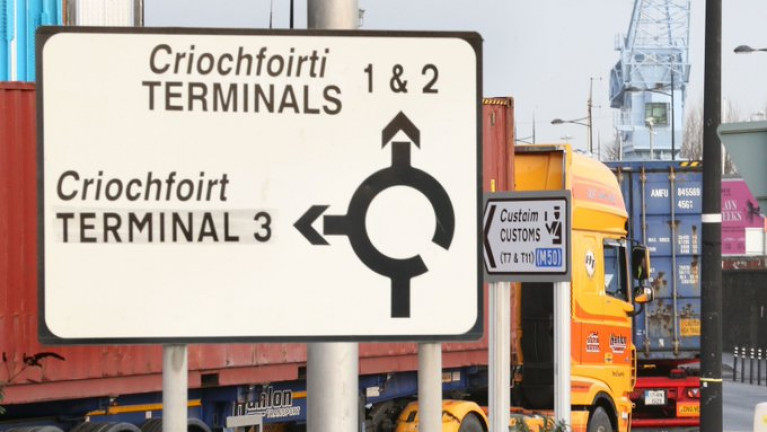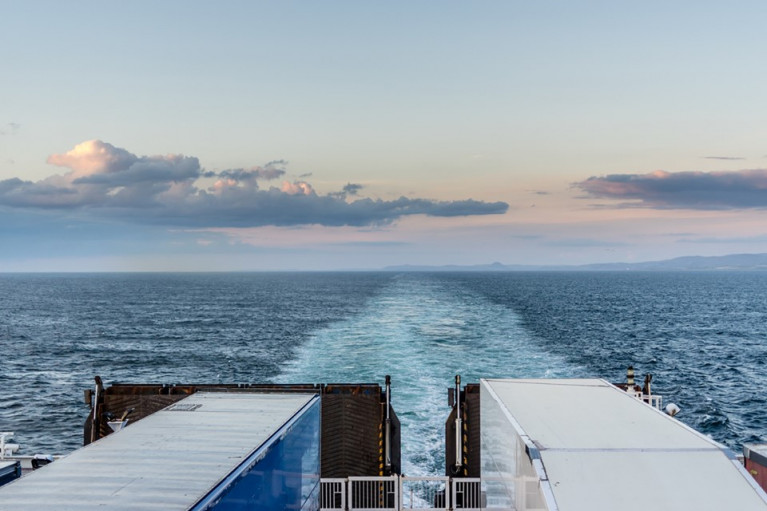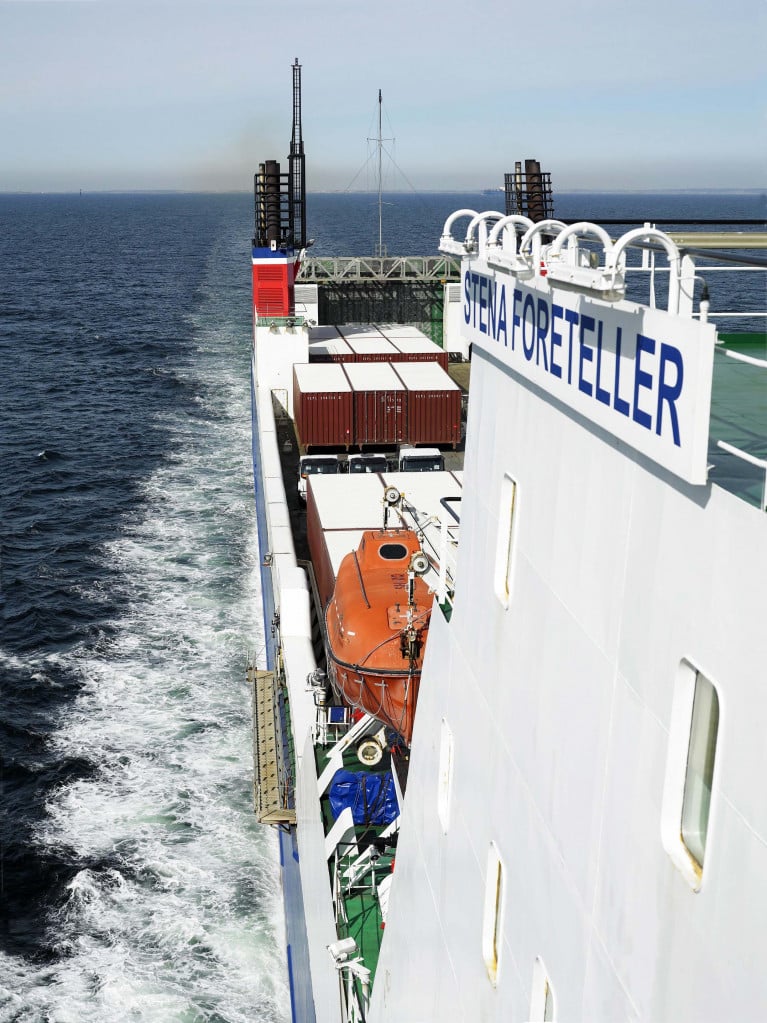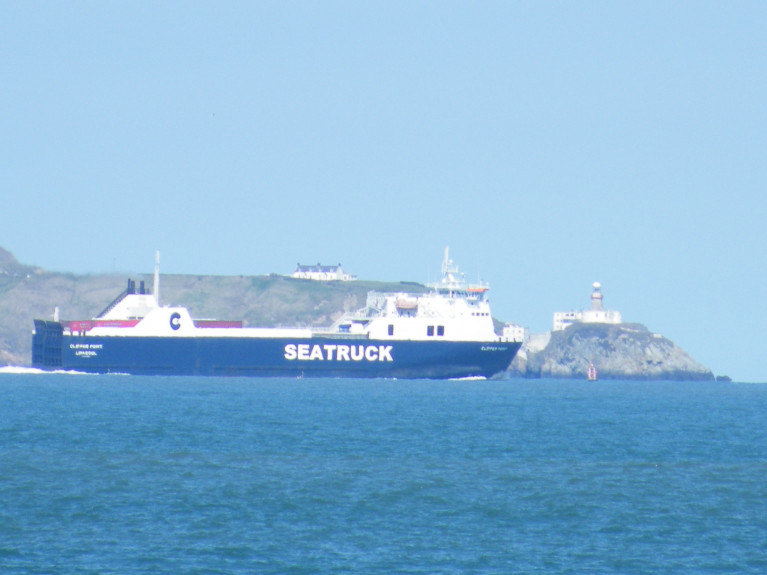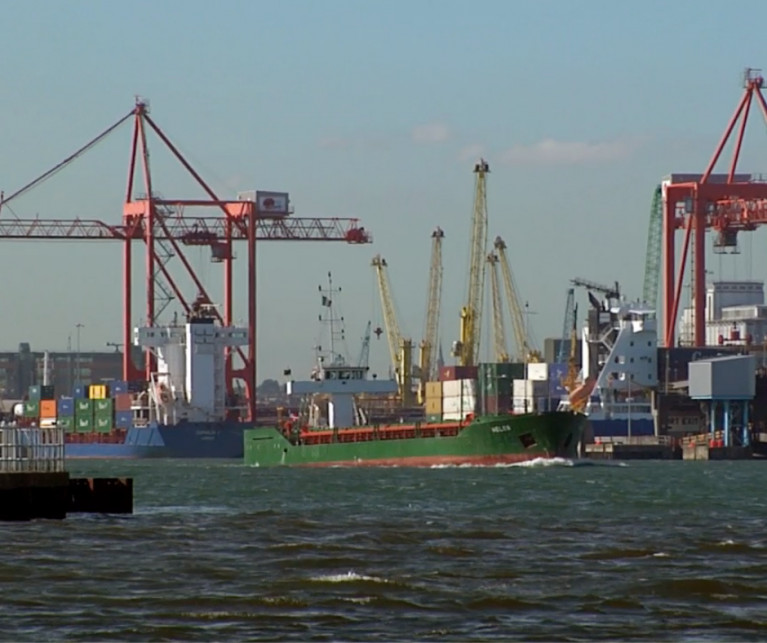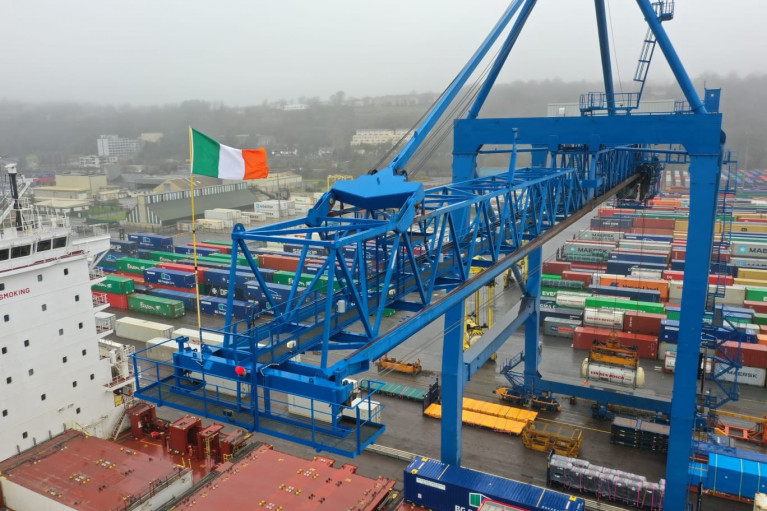Displaying items by tag: Irish Exporters Assoc
IEA Says Importers Prioritising Goods to Minimise Supply Chain Disruptions
As RTE News reports, supply chain issues are a global phenomenon, and Irish importers are prioritising what they import to minimise the effects of disruptions.
Ireland exported €162 billion worth of goods in 2020 and figures so far this year suggest exports will be as high in 2021.
However, there has been a noticeable increase in imports to Ireland, driven by consumer demand and a growing economy.
According to Simon McKeever, CEO of the Irish Exporters Asssociation, Ireland isn't immune to global supply chain problems, and importers are being selective of inventory where possible.
More here on what the IEA said on trends and trade.
IEA Welcomes Additional time for Irish Exporters to Prepare for UK Trade Controls
The Irish Exporters Association (IEA) has broadly welcomed today’s announcement by the UK Government that controls and requirements due to come into force on 1 October on exports into the UK will be pushed out to 1 January and 1 July 2022.
Chief Executive Officer of the IEA, Simon McKeever urged all involved to use the extended time to ensure systems are in place and robust enough to deal with the volume of documentation that will have to be generated and submitted when controls come into force.
The CEO commented: “Members that have been setting up for 1 October will welcome the additional time to prepare for pre-notifying and acquire Export Health Certificates for exports of animal origin.
Today’s announcement means that exports of animal product consignments from the EU can flow to the UK as they do today until 31 December 2021.
We have been working with impacted members to ensure that they understand the various controls and requirements coming down the track and understand that concerns about cumbersome systems and timelines have really come to the fore in recent weeks.”
Irish Exporters Association Largely Welcome UK Government's Delay to Phasing in Import Controls
This afternoon the Irish Exporters Association (IEA) has largely welcomed the announcement by the UK Government to delay the post-Brexit checks on EU goods coming into Great Britain by six months.
The delay, which was announced by Michael Gove MP, gives Irish and UK businesses more time to prepare.
The CEO of the Irish Exporters Association Simon McKeever believes that while Irish exporters have more time to prepare, we have concerns about the impact that the delaying of deadlines is having to Irish businesses’ preparations and in a wider context, the overall impact to EU – UK relations.
Chief Executive of the IEA Simon McKeever commented: “We have been working with our members to prepare them for the phasing in of UK import controls on 1 April and 1 July, and whilst having more time to prepare will be a relief to many Irish businesses, we have concerns about the wider issue of postponing deadlines and the uncertainty that creates in the long-run".
"Nevertheless, the delay of imposing further controls on EU goods entering Britain is welcomed and should mean that further disruption to trade is minimised for the next 6 months. This decision of course just highlights the total lack of preparation for Brexit by the UK, and I question whether they will, in fact, be ready by the end of this year".
The revised timetable for the introduction of controls essentially gives business in the EU and the UK a further six months to prepare. Irish food and drink businesses will have to ensure that Export Health Certificates accompany goods of animal origin, certain animal by-products and high- risk food not of animal origin entering Britain from 1 October 2021, as opposed to 1 April.
We will continue to work with our members to prepare them for the new deadlines and we would encourage UK companies to do the same.”
Irish Exporters Association Welcome Additional Rosslare-Cherbourg Route Capacity in 2021
The Irish Exporters Association (IEA) has welcomed the announcement that Rosslare Europort will from January 2021 accommodate an additional sailing to Cherbourg, operated by Stena Line.
The additional 'freight-only' ferry, that will commence sailing from 4th January 2021, is a welcomed development, with which Irish exporters will factor into their Brexit proofing plans.
IEA Chief Executive, Simon McKeever added: “Alternatives to the landbridge are a key consideration for exporters and importers. I am urging IEA members to analyse their supply chain operations and look for ways to limit the shock of Brexit, which is looming large at the moment.
The announcement by Rosslare Europort reaffirms the port’s commitment to Irish exporters and importers alike. Ensuring the swift, timely and direct transit of goods to and from the continent is a paramount consideration and announcements such as this gives traders more options to bring their goods to the single market.”
Irish Exporters Association Welcomes Possible “Green Lanes” for Food Products Using UK Landbridge
Irish Exporters Association (IEA) have today welcomed news that Irish and EU officials have developed a draft proposal that would give Irish food exports access to "green lanes" when they come off ferries traveling from British to continental ports.
The Association is cautiously welcoming the news due to the fact that the proposal still needs the approval of EU Member States and UK negotiators would have to agree to the terms during the course of the ongoing talks on a free trade agreement - talks that have not yielded substantial progress to date.
The IEA will closely follow the progression of this proposal and hopes that the outcome will indeed somewhat limit the impact of the UK’s withdrawal on the Irish agri-food sector.
Chief Executive Simon McKeever commented: “Trade between the EU and the UK will be different from 1 January 2021, irrespective of whether or not a trade deal is agreed between both parties, and businesses need to know that.
We welcome measures that limit the impact of the new trading environment on Irish agri-food exporters, particularly given that the smooth transit of Irish exports via the landbridge to the continent is of crucial importance.
The introduction of green lanes for certain products during the pandemic has proved to be largely successful. We would hope that this proposal allows for the similar fast tracking of Irish food and live animal exports destined for the single market via the UK.
We wait to see the details of the proposal, particularly clarity on whether or not the proposal completely removes transit barriers to the continent, more information on any digital paperwork required, and if there is a guarantee that no delays will occur at UK ports. These are questions that exporters need answers to.
Over the course of the pandemic, we have seen the opening up of direct shipping routes from Ireland to the continent. This development will in time limit the degree of reliance on the use of the landbridge by Irish supply chain operators and is an important point for Irish exporters to factor in when consulting their Brexit preparedness plans.”
“Working Towards Strong Likelihood of No-Trade Deal (EU-UK) Must be Brought Back to the Fore” - Irish Exporters Association
At a press briefing today, the EU’s Chief Negotiator pointed out that the UK is not living up to several crucial issues jointly agreed in the Political Declaration from October 2019, including the level playing field.
The end of the transition period (31 December) is less than 7 months away and the ongoing difficulties experienced in negotiations between the EU and the UK continue. As such the Irish Exporters Association (IEA) is calling on businesses to prepare for the strong likelihood that there will be no comprehensive free trade agreement between the EU-27 and the UK from 1 January 2021.
The IEA has continually expressed its deepest concerns about the very real possibility that the UK will depart from the EU on 31 December without a trade arrangement. The impact of the worst-case scenario on businesses is further compounded by efforts to address the COVID-19 fallout. The Irish Exporters Association is expecting that no trade agreement will in fact be agreed and that this will severely impact Irish exporter’s ability to recover from the economic fallout owing to COVID-19.
Chief Executive of the IEA Simon McKeever commented: “We believe that there will be no agreement reached on a free trade agreement between the EU and the UK and therefore businesses need to make preparations for a worst-case scenario. Considering the magnitude of a recession that the country is facing, businesses need to make haste and prepare for the next shock to the economy, which is the UK’s full withdrawal from the EU. This is now potentially just months away.
Businesses are already tackling the challenges of COVID-19, however, I would urge them to go back to their Brexit preparedness planning and ensure that they are still on track to deal with the potential fallout.”
Irish Exporters Association Says “Stalemate in EU-UK Talks Threatens Covid-19 Economic Recovery”
Irish Exporters Association's chief executive has commented that the ongoing stalemate in the EU-UK negotiations on a future partnership could severely counteract the ability of an export led COVID-19 economic recovery.
Following, the UK Government’s publication of how it intends to implement the Northern Ireland Protocol, including details on how it will fulfil customs arrangements in Northern Ireland, scepticism has arisen. The Irish Exporters Association has raised concerns that the UK’s proposal adds to the uncertainty that the Irish business community is currently faced with.
Chief Executive Simon McKeever commented: “The operation of the EU Customs code by UK officials in Northern Ireland will need further clarification and we await the outcome of the technical discussion next week. In the absence of any new customs infrastructure in Northern Ireland, I have concerns about how sufficient customs checks, that protect the integrity of the single market and facilitate the smooth functioning of an all-Ireland economy, can be carried out. This ambiguity just adds another layer of uncertainty that businesses have to contend with.
Ireland has come through previous economic crises, with exporters driving the recovery. While the origins of this crisis are like no other we have experienced, the recovery does require the same tactics as the past and must be export led. We have stepped up communication to our members on the progress, or rather lack of, in these important negotiations and will reach out to members to ensure that they are prepared.
Although it is most undesirable, the only notable point of the 30 June is that we will have a better understanding on what the trading situation will be with the UK from 1 January 2021. We then have 6 months to prepare and the Government of the day must take account of this in any economic recovery strategy. If the UK are to walk away from the negotiating table from 1 July, which seems the most likely outcome now, this is not in anyone’s interest and I have concerns on how this will impede Ireland’s economic recovery.“



























